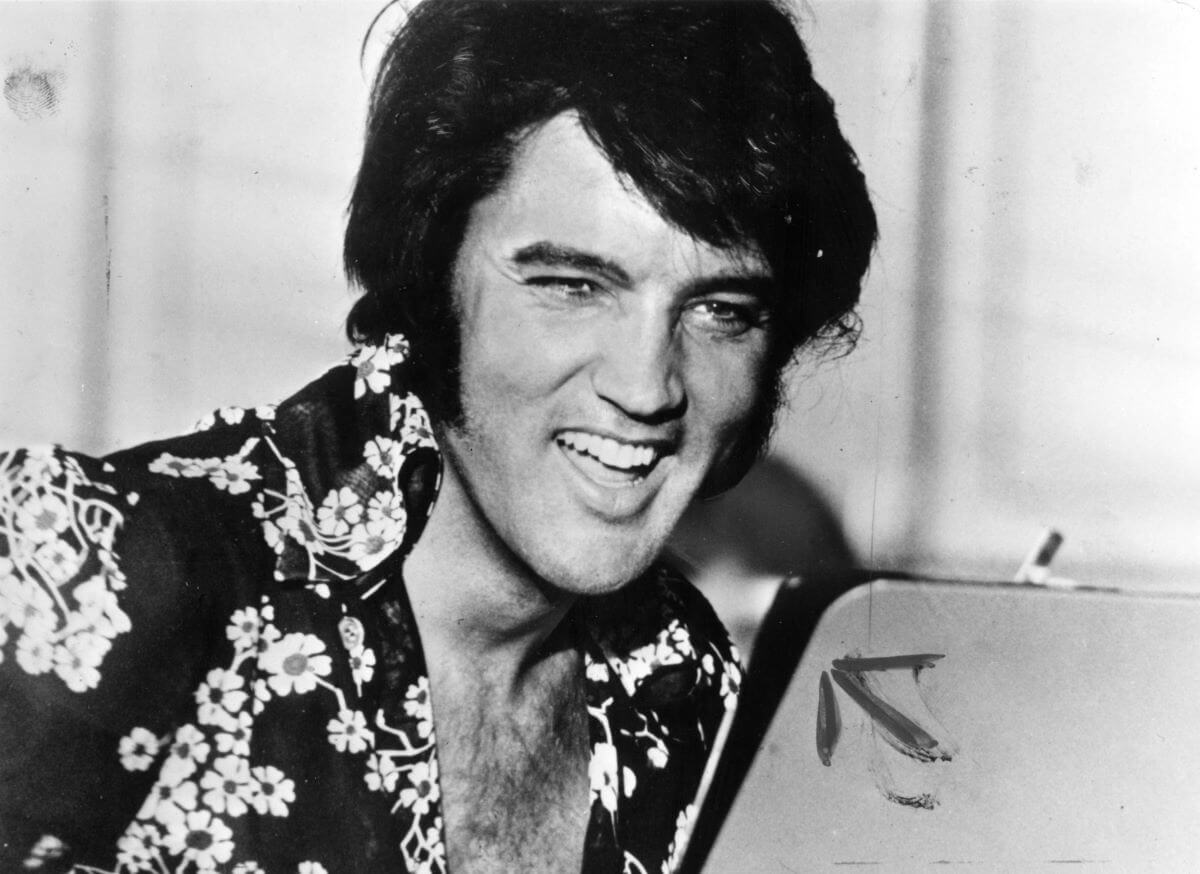
Elvis Presley Gave All the Money He Had to a Soldier on a Plane
While on a flight to Washington, D.C., Elvis Presley found his seatmate so engaging and sympathetic that he gave him all the money he had in his wallet. He was on a trip that, perhaps for the first time in his life, he had planned himself. Elvis took a limited amount of money with him, but he quickly gave it all away. He met a soldier on his flight and emptied his wallet for him.
Elvis Presley gave all the money in his wallet to his seatmate on a plane
After a fight with his father about finances and the control his manager, Colonel Tom Parker, had over his career, Elvis stormed out of the house. He didn’t tell his father or Priscilla Presley where he was going, which surprised them. Typically, Elvis relied on others to make plans for him.
Elvis first flew to Washington, D.C., before making the cross-country trip to Los Angeles to treat an allergic reaction. While in LA, Elvis cashed a $500 check to have money on hand. He planned to go back to D.C. and, as he was only traveling with his friend Jerry Schilling, needed to be able to spend money if he needed to. Typically, though, Elvis did not carry cash.
Despite his preparations, when Elvis landed in D.C. for the second time, his wallet was again empty. He met a young soldier on the plane and gave him the $500.
“During the flight, Elvis befriended a young soldier just returning from Vietnam,” Priscilla wrote in her book Elvis and Me. “The soldier must have told him his life story. Before the plane landed, Elvis asked Jerry for the five hundred dollars and handed it over to the young man, wishing him luck.”
Schilling warned Elvis that this was the only money they had, but the musician paid this little mind.
“Jerry said, ‘Elvis, that’s all we have.’ Elvis responded with, ‘Yeah, but he needs it worse than I do, Schilling.’”
Elvis Presley often gave money to those who asked for it
Elvis was extremely generous with his money. He handed over everything he had to a stranger and wrote far larger checks for the people he knew well.
“By today’s standards the boys’ salaries were not high — the average paycheck was $250 a week — but if the boys ever felt the pinch by the end of the month, they would go to Elvis,” Priscilla wrote of Elvis’ entourage. “They’d ask him if he could help them out with a down payment on a house or the first and last months’ payments on an apartment. Elvis always came through for them, lending them the one thousand or five thousand or ten thousand dollars they asked for. He was rarely if ever paid back.”
Elvis also gave them generous gifts for holidays or when he thought they might need a boost.
His father and manager found his methods of spending to be concerning
Elvis’ entourage appreciated his generosity, but his father had always found it concerning. He was frugal and worried that the constant spending would push Elvis into bankruptcy.
“Vernon didn’t have much respect for the guys,” Priscilla wrote. “He said Elvis just gave and gave and gave, and they took and took and took. He’d say, ‘Son, we have to save.’ Elvis would answer, ‘It’s only money, Daddy. I just have to go out and make more.’”
Vernon’s problems with the entourage continued for years. He had been speaking to Elvis about them before the musician stormed out and flew to D.C. Vernon, Parker, and even Priscilla believed that Elvis could not buy friendship. If he kept spending like he had been, he would end up bankrupt. Elvis never listened, though.


